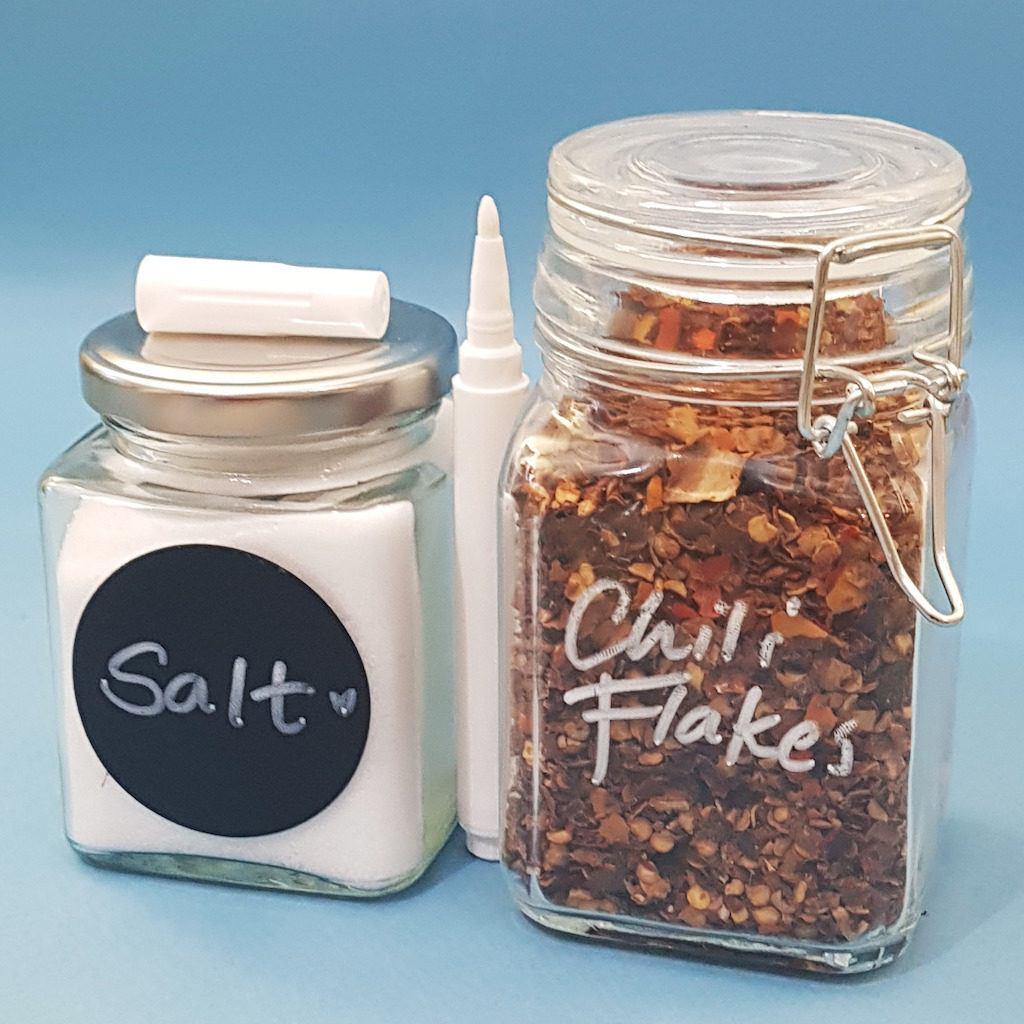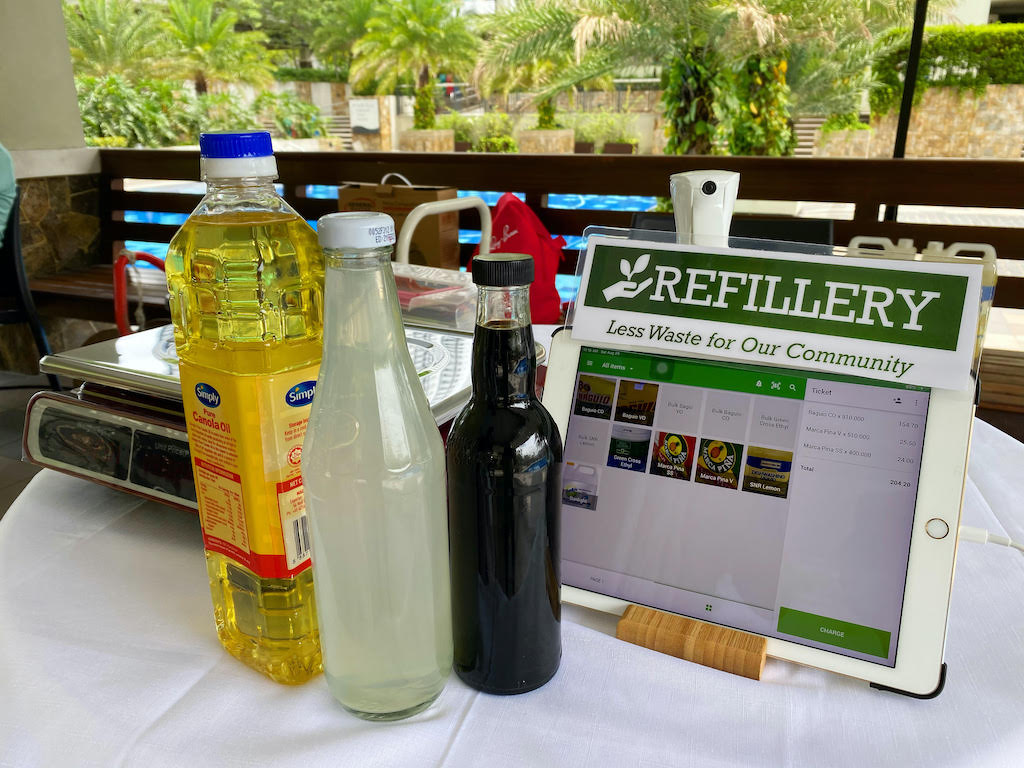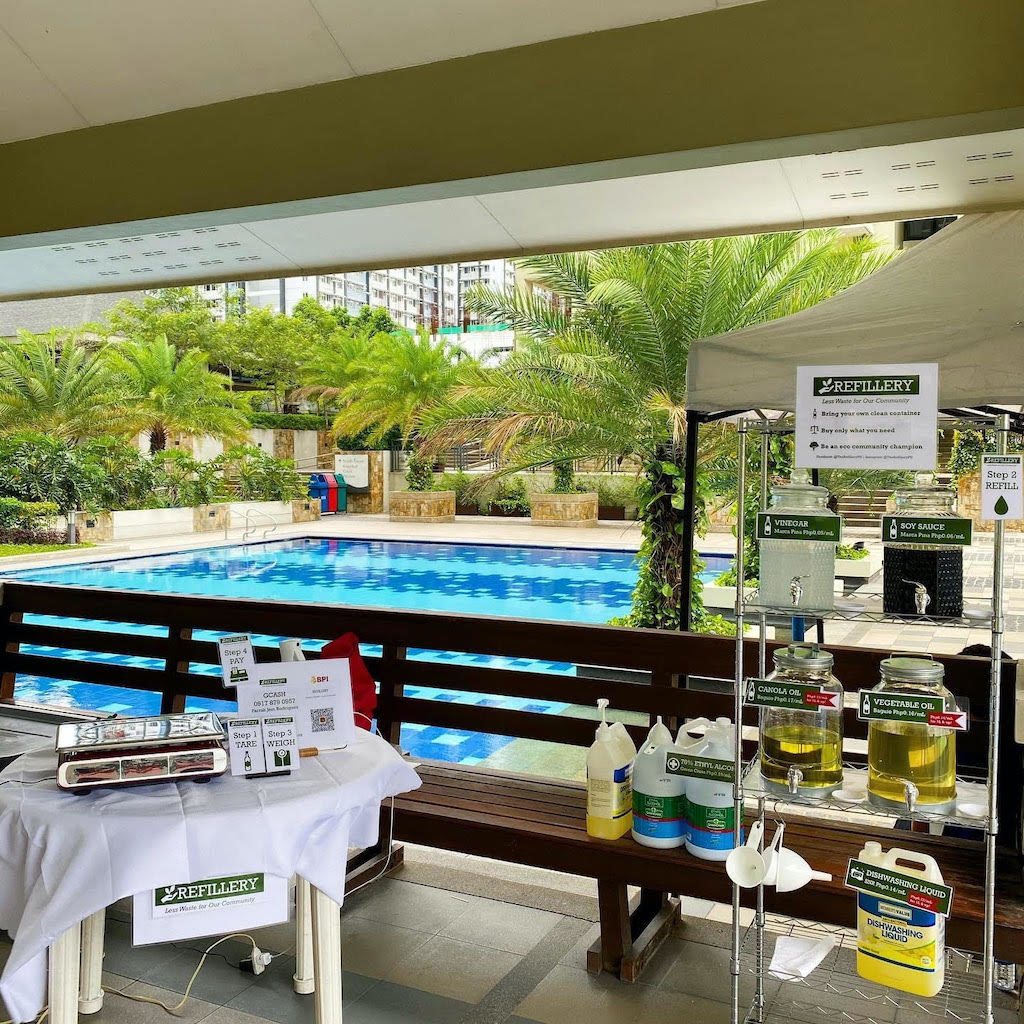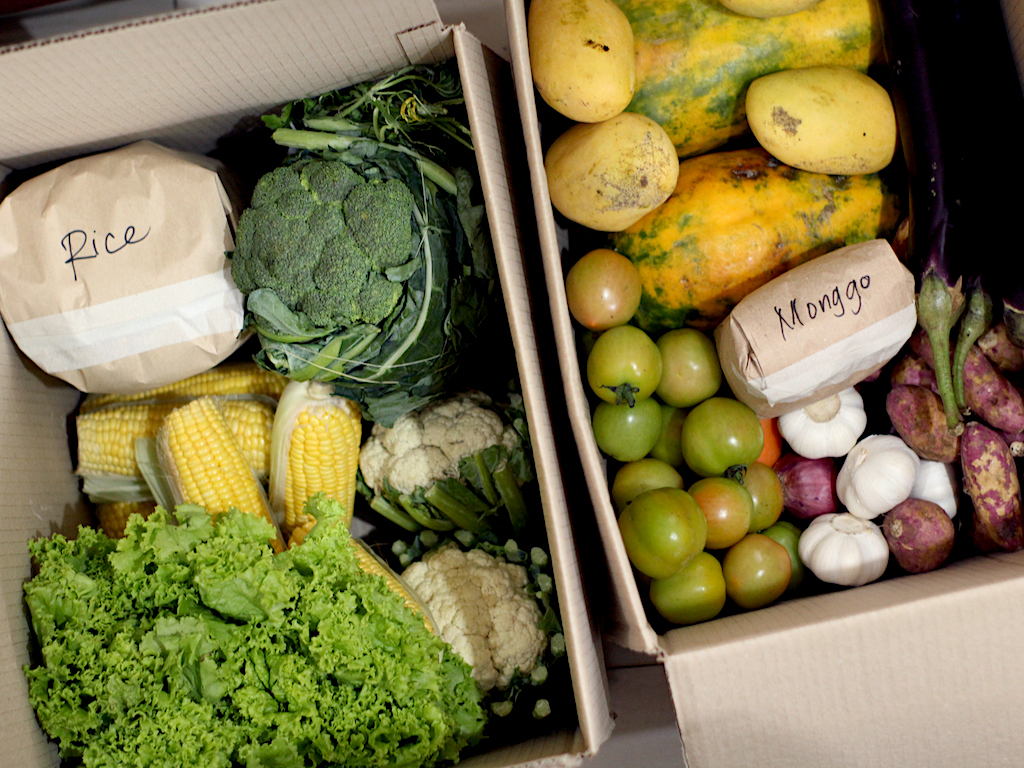5 Mins Read
In an excerpt from a new book ‘BUSINESS UNUSUAL: Enterprises paving the way to Zero Waste,’ Marlet Salazar takes us through two Philippine initiatives showing that retail without plastic sachets is not only possible; they are the way.
By Marlet Salazar
Salin PH: Mobile Retail Store
The desire to debunk the myth that going Zero Waste is expensive led to the founding of Salin PH (formerly Refill on the Road), a micro, small, and medium enterprise that offers sustainable products and promotes a plastic-free lifestyle.
“We want to make our products accessible by going to different locations and at the same time, compete with the pricing in the supermarkets,” said Krishia Pauline Ellis, CEO of Salin PH.
Salin PH started the preparations of rolling out a mobile refilling service in a customized vehicle targeting mainly condominiums. The COVID-19 pandemic sidelined the idea but it didn’t stop Krishia and the group from pursuing their advocacy.

Salin PH is also trying to challenge the current mindset that selling tingi or retail is not possible without plastic sachets by selling its products via refill. Salin PH’s product lineup includes fresh produce—which is the store’s bestseller—as well as spices, coffee, superfood, nuts, loose leaf tea, personal, home care products, reusable jars, and eco-bags. Salin PH also offers a collection of Clean and Dry Plastic waste, alongside the product deliveries, which are then diverted to organizations who process them like The Plaf and Green Antz.
In response to the challenges of COVID-19, they used the online platform and increased their digital presence while still ensuring “a great customer experience.”
According to Krishia, the pandemic sped up e-commerce growth. Resources have become decentralized, giving more people better access to products, but it has also become harder to compete and be noticed online. “We learned that it is important to do content marketing continuously so that we can increase our audience.”
While the challenge of the pandemic dampened spirits and the economy, Salin PH is looking at expansion next year.
“We are confident that we will expand even more by 2021 because our priority since the start is solving the needs of our customers,” Krishia said. “As long as we try to understand and talk with them constantly, we believe that we can grow even more.”
The Refillery: Your Community Refill Store

Founded by eco scuba divers who have been doing ocean cleanup until COVID-19 happened, The Refillery is another endeavor that, in the words of one of its founders, Farrah Rodriguez, is trying to be “low impact.”
The Refillery demonstrates, among others, that the pandemic is an opportunity to improve. If for many, the pandemic paused all their planned projects, The Refillery’s founders found an opportunity to continue their environmental work by beginning to selli (retail) tingi products.
The initiative also shows that embracing the tingi (retail) economy does not need to mean resorting to disposable plastic sachets. It sells everyday condiments such as black pepper, canola and vegetable oil, local salt, soy sauce, and vinegar through refillable containers along with household products like dishwashing liquid and 70% ethyl alcohol.
“With the fear of getting the virus from going out and being exposed, our community encouraged a community market that allowed us to refill our neighbors,” Farrah said.

The Refillery started around April or at the height of coronavirus infection and quarantines.
The fear of not working out the business plan and advocacy was quickly erased when upon the launch, the community responded favorably. Seeing that what The Refillery was doing is beyond making a profit, their neighbors supported them openly by patronizing their products. It also helped that people don’t want to be infected so not wanting to go to crowded places such as the supermarket helped push the value proposition of reducing waste.
According to Rodriguez, she has received demands to open up more shops but she has a day job. However, she is not disregarding the possibility of a branch next year when things will be more manageable than the current situation.
“I’d also love to work with more organizations that can help me learn about eco-projects for communities,” Farrah said.
The tingi economy doesn’t have to go if people want to go Zero Waste–we just have to change how we do things–from prioritizing convenience at the expense of the environment, to putting our health and that of the environment on the top when making our choices.
It seems hard, but Salin PH and The Refillery and their likes show the paradigm shift is not only possible, they also make it look easy.

This above extract is part of the book, ‘BUSINESS UNUSUAL: Enterprises paving the way to Zero Waste,’ a collection of feature articles on select enterprises in Asia Pacific that practice and promote zero waste principles. Published by Global Alliance for Incinerator Alternatives (GAIA). Download the book for free here. the publication may be downloaded for free at no-burn.org.
All images courtesy of Global Alliance for Incinerator Alternatives / Salin PH / The Refillery.




